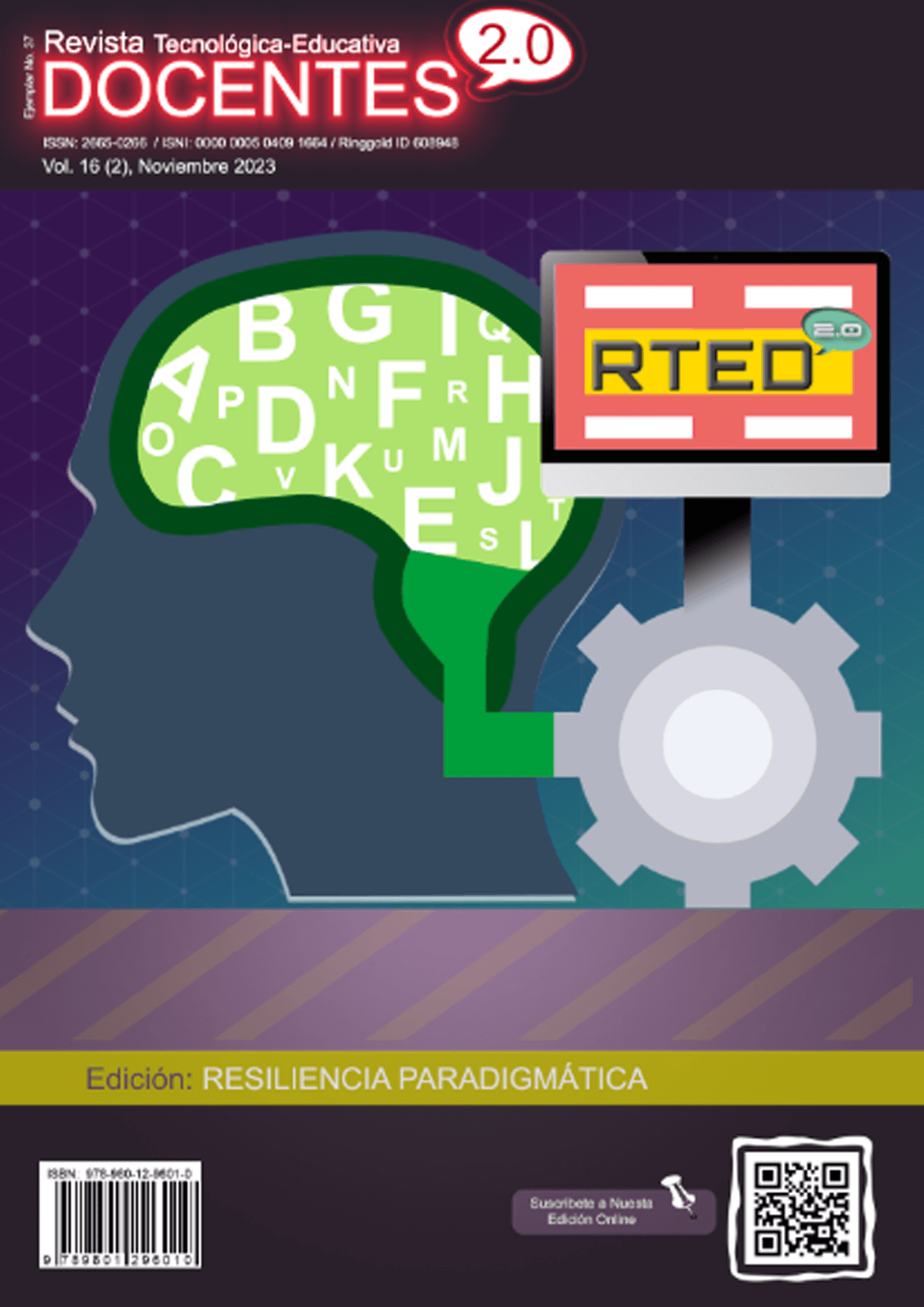Educational Prospective, Challenges, Opportunities and Visions in México
 DOI:
https://doi.org/10.37843/rted.v16i2.386
DOI:
https://doi.org/10.37843/rted.v16i2.386
Main Article Content
Abstract
An educational perspective is a useful tool for identifying the challenges and opportunities in educational change and designing strategies with effective policies to improve education. The present essay was framed under the inductive method of a descriptive type, hermeneutic paradigm, with a qualitative approach based on the case studies carried out previously with a narrative design in a subjective way of a topical type accompanied by different perceptions of various authors, which frames the possible future scenarios of the educational system in the country, to establish strategies with policies that allow facing the challenges and taking advantage of the opportunities. In this sense, the educational perspective of Mexico considers factors such as demographic evolution, technological advances, world trends in education, and changes in the economy and society; plans or programs can be designed that respond to the population's needs that contribute to the country's development. In addition, it faces various challenges in carrying out effective planning that allows for improving the country's education quality. However, it is possible to face these challenges by collaborating with different actors and implementing innovative strategies with positive effects. In this way, the challenges and opportunities presented by the future of education in Mexico can be identified, addressed, and understood effectively.
Downloads
Metrics
Article Details

This work is licensed under a Creative Commons Attribution-NonCommercial-NoDerivatives 4.0 International License.
Those authors who have publications in our journal accept the following terms:
- When a work is accepted for publication, the author retains rights of reproduction, distribution of his/her article for exploitation in all countries of the world in the format provided by our magazine and any other magnetic medium, optical, and digital.
- Authors will retain their copyright and guarantee the journal the right first to publish their work, which will be simultaneously subject to the Creative Commons Acknowledgment License (Attribution-NonCommercial-NoDerivatives 4.0 International (CC BY-NC-ND 4.0)). That allows third parties to copy and redistribute the material in any medium or format, under the following conditions: Acknowledgment - You must properly acknowledge authorship, provide a link to the license, and indicate if any changes have been made. You may do so in any reasonable way, but not in a way that suggests you have the licensor's endorsement or receive it for your use. NonCommercial - You may not use the material for a commercial purpose. NoDerivatives - If you remix, transform, or build from the material, you cannot broadcast the modified material. There are no additional restrictions - You cannot apply legal terms or technological measures that legally restrict you from doing what the license allows.
- Authors may adopt other non-exclusive license agreements to distribute the published version of the work (e.g., deposit it in an institutional archive or publish it in a monographic volume) provided that the initial publication in this journal is indicated.
- Authors are allowed and recommended to disseminate their work through the Internet (e.g., in institutional telematic archives, repositories, libraries, or their website), producing exciting exchanges and increasing the published work's citations.
- Request of withdrawal an article has to be done in writing by the author to the Editor, becoming effective after a written response from the Editor. For this purpose, the author or authors will send correspondence via e-mail: [email protected].
- The author will not receive financial compensation for the publication of his work.
- All Docentes 2.0 Journal publications are under the Open Journal System (OJS) platform at: https://ojs.docentes20.com/.
References
Banco Mundial. (2018). Indicadores de Desarrollo Mundial. Datos de Banco Mundial Gasto Público en educación total (PIB). https://n9.cl/wlzbo
Balbi, E. (Ed.). (2008). Metodología de la investigación de futuros. CelGyP y The Millenium Project.
Berger, G. (1967). Gastón. Etapes de la prospective. PUF.
De Pablos-Pons, J. & Jiménez-Cortéz, R. (2007). Buenas prácticas con TIC apoyadas en las Políticas Educativas: claves conceptuales y derivaciones para la formación de competencias. ECTS. Revista latinoamericana de tecnología educativa, 6 (2), 15-28. https://n9.cl/3qnad
Epper, R. & Bates, A.W. (2004): Enseñar al profesorado como utilizar la tecnología. Buenas prácticas de instituciones líderes. Editorial UOC.
Godet, M. (1979). The crisis in forecasting and the emergence of the porspective approach. Pergamon Press.
Hodara, J. (1980). Los estudios del futuro: Problemas y Métodos. https://n9.cl/jtiyz DOI: https://doi.org/10.18356/abce3e53-es
INEE (2018a). Condiciones básicas para la enseñanza y el aprendizaje en los planteles de educación media superior en México. Resultados generales. https://n9.cl/m6or1
Jouvenel, H. (1993). Sur la métho de prospective: un bref guide méthodologique. Futuribles, (179). https://n9.cl/08tvm
Lemke, J. L. (2006). Investigar para el futuro de la educación científica: nuevas formas de aprender, nuevas formas de vivir. Enseñanza de las ciencias, 24(1), 5-12. DOI 10.5565/rev/ensciencias.3810 DOI: https://doi.org/10.5565/rev/ensciencias.3810
Michel, A. (2002). Una Visión Prospectiva de la Educación: Retos, Objetivos y Modalidades. Gobierno Español. https://n9.cl/ws4w9
Mojica, F. J. (2006). Concepto y aplicación de la prospectiva estratégica. Revista Med, 14(1), 122-131. https://n9.cl/pvdb8
Vallejo A. (2020). Prospectiva de la educación. Gobierno Mexicano. https://n9.cl/ph7u68






